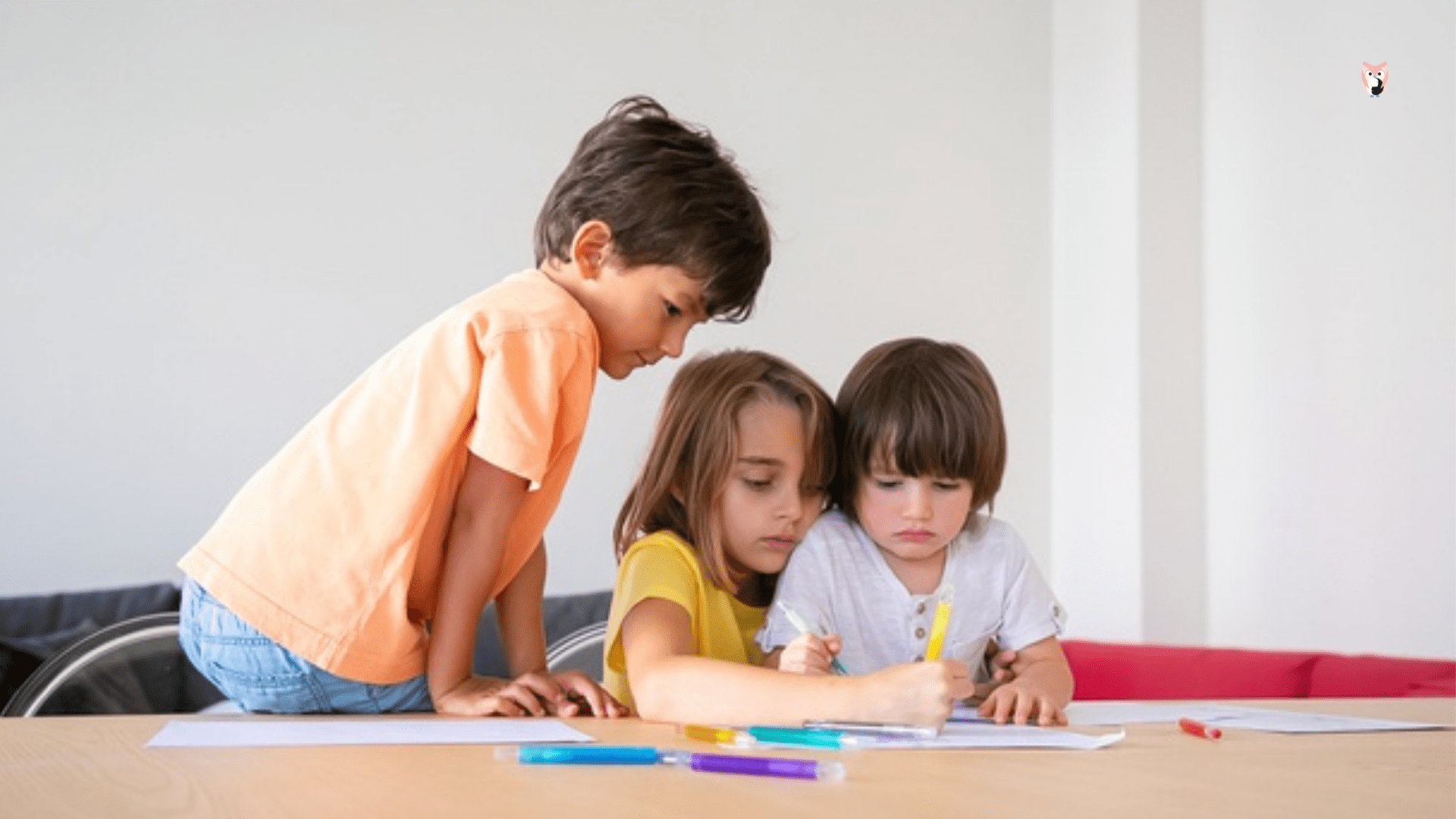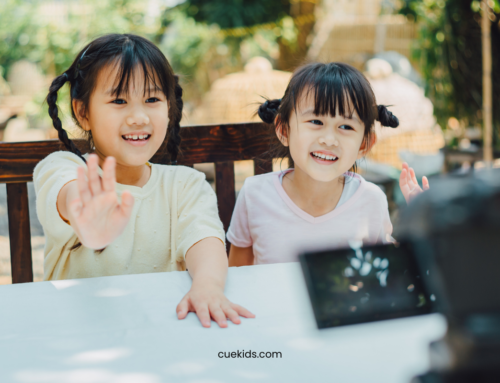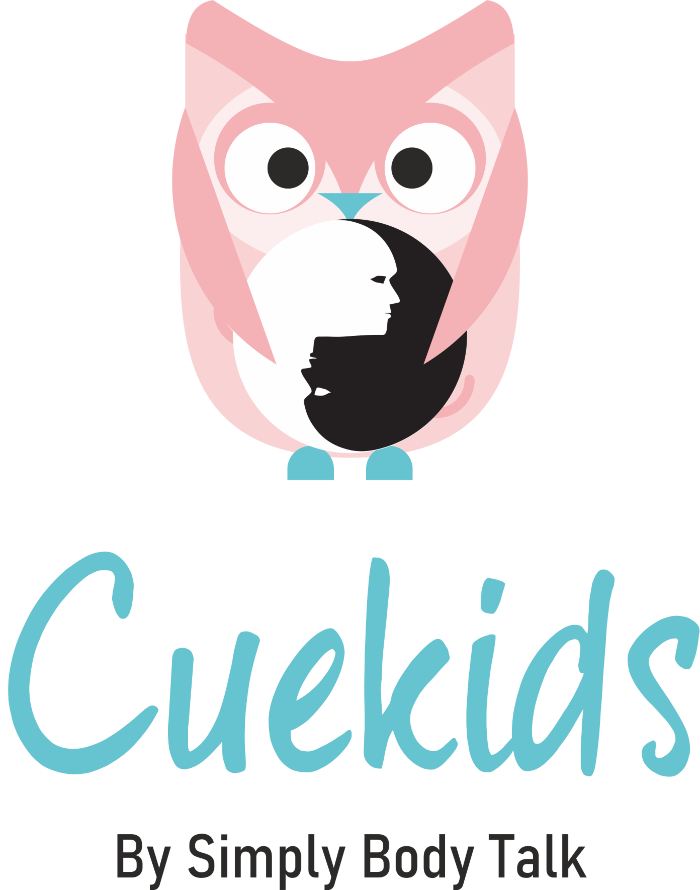What can I do to make my child more confident when they interact with other people? What should I do so that my child does not feel shy and makes better connections? We as parents and teachers often have these questions leaving us wondering what could we possibly do to improve our child’s social skills. Let us learn about the importance of social skills.
What are social skills? What qualities do they include?
Social skills are skills that promote effective interactions with others. There are various social skills as well as several ways in which we interact with people daily. Social skills include written, verbal, nonverbal and visual interaction used to relay a message to others. Common ways in which you exercise your social skills are:
- The language you use
- Cooperating and coordinating in a team
- Organization skills
- The way you manage small or big interactions with strangers
- Your body language
- Eye contact with others when interacting
How does having good social skills benefit my child?
Better educational and career outcomes:
Most recent studies found that children who were better at social skills like sharing, listening, cooperating, and following the rules at age five were more likely to go to a good college. They also were more likely to be employed full-time by age 25.
Good social skills also can help kids have a brighter future. According to a study published in the American Journal of Public Health, a child’s social and emotional skills in kindergarten and middle school might be the biggest predictor of success in adulthood.
Children, when they learn important life skills early on in life they inculcate discipline in themselves and achieve a growth mindset which gives them the desired results.
Stronger friendships:
Having good social skills teaches a kid to be empathetic, to be a good listener and to be a person who abides by rules. These disciplinary habits help the kids to form better and solid friendships and relationships.
Kids who have strong social skills and can get along well with peers are likely to make friends more easily. In fact, a study published in the International Encyclopedia of the Social & Behavioral Sciences indicates that childhood friendships are good for kids’ mental health.
Great Communication Skills:
After all, we can not have great social skills without good communication skills and being able to convey our thoughts and ideas effectively may be the single most important skill that we can develop in life. Helping kids develop them early on will definitely set your child up for success.
Kids are naive and vulnerable, helping them sort their emotions, helping them understand ways of verbal and non-verbal communication will not only make them better at communication and social skills but also making them future ready.
Develop Social Skills with Be Future Ready Course for Kids
More Efficiency:
Social skills also imply learning to organise and work efficiently without hassle or chaos. Teaching kids organisation be it organising their things, organising their thoughts and emotions or organising and systematically putting up their work or project, will help them in being more productive and efficient.
Being efficient will also allow the kids to manage distress and panic situations. For example: if your kid has a test coming up, they also have to submit a project, and they also have to buy stationery for it. In a busy schedule like this ask your child to make a to-do list or to organise and manage time efficiently.
So what are the potential consequences of poor social skills?
According to several developmental studies, children who lacked social and emotional were more likely to face the following consequences:
- Dependence on public assistance
- Legal trouble
- Substance abuse issues
- Relationship issues
- Lack of motivation and decreased efficiency.
What can I as a Parent do to improve my child’s skills?
Practice Role Playing:
Pretend-play, with both younger and older children, is a great way for kids to actively practice their social skills. Have your child pretend to be the person they have difficulty talking to or getting along with. This will give you an idea of what this person is like, or at least how your child perceives this particular person. Then switch roles to see how your child does when pretending to interact with the person.
Suggest ways your child can more effectively talk with the individual. Don’t forget to include body language, such as smiling and making eye contact, when advising your child.
Teach Empathy:
If children have a better understanding of how others feel, they are much more likely to feel connected to other people and form positive bonds. Parents suggest teaching empathy by talking about different situations and scenarios with your child.
Ask how other people might feel when each of these things happen. Part of teaching empathy is to help children learn how to actively listen to others. This involves focusing on what others are saying and then thinking about what the speaker has said once the conversation is over.
Know Your Child’s Limits:
Some children are simply more social than others. A child who is shy and introverted should not be expected to interact in the same way as a child who is naturally outgoing. Some children are comfortable in large settings, while others find it easier to relate to their peers when in smaller groups.
Conclusion
We can say that having good social skills will not only help with verbal interactions but also with non-verbal interactions. Children learn to develop and tweak their communication style and body language based on the kinds of interactions they will have with different people. You as a parent can, try these simple tricks and techniques to make your child better at social skills. Learn and teach the kids the importance of such skills and educate them on how they can be future-ready!






[…] you as a person, but it goes a long way toward developing your social value. Helping children learn social skills becomes easier with public speaking, as they are familiar with giving speeches, talking fluently, […]
[…] the child directly, place it at a place where it’s noticeable and wait for them to notice. Such social skills activities for kids will help them identify changes in their surroundings and promote their inner […]